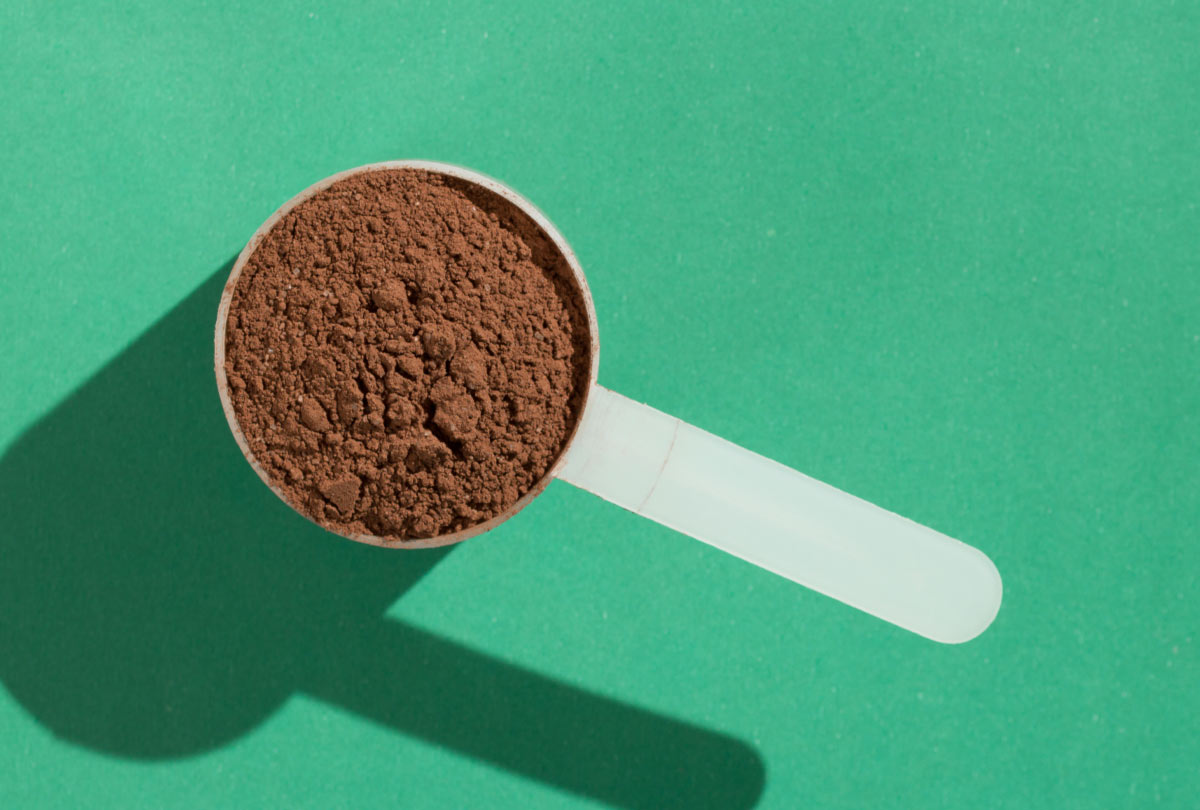Remember when mom always told us to eat our carrots because it would help us see better? Turns out, she was right! That’s because carrots contain lutein for eyes, helping protect us from vision loss.
Even though we often associate vision loss with seniors, this is generally a slow process that takes place over many years. That’s why it’s important to take care of our eyes, starting now!
To learn more about lutein, its benefits, and how to get more of it, check out this quick guide on lutein for eye health.
What Exactly Is Lutein & How Does It Protect Our Eyes?
Lutein is often referred to as “the eye vitamin.” But more specifically, it’s a carotenoid. Carotenoids are pigments that give plants, fruits, veggies and algae their bright yellow, red and orange colors. But their beauty is not just skin deep!
Carotenoids are powerful antioxidants that neutralize the harmful effects of free radicals, which can damage cells and contribute to a variety of diseases. Out of more than 600 carotenoids, only two of them – lutein and zeaxanthin – help protect the retina of the eye from the damaging effects of light.
Just like peanut butter is always with his beloved jelly, lutein and its sister compound zeaxanthin go hand-in-hand, working in tandem to benefit eye health.
Lutein and zeaxanthin are found in the macula, the central part of the paper-thin retina that’s most susceptible to light damage. The macula allows us to have clear vision, see things in fine detail, and see colors and contrasts.
Think of these carotenoids as the “internal sunglasses” for your eyes. As the components of the macular pigment, lutein and zeaxanthin are essential for absorbing harmful blue light and maintaining clear vision.
They filter the damaging blue wavelengths of light striking the retinal tissue, thereby preventing oxidative stress and free radical damage of the cells of the macula through their antioxidant activity.
Why Is Blue Light a Big Deal?
Blue light isn’t all bad. It helps regulate our circadian rhythm, the body’s natural sleep and wake system. It also helps boost our awareness and elevates mood.
The problem is how much we’re exposed to it in today’s plugged-in world. Too much blue light can damage light-sensitive cells in the retina, cause eye strain and increase our risk of vision loss.
Most of our blue light exposure comes from the sun. Sunlight is comprised of a range of colors, and it’s the rays on the bluer side of the spectrum that have shorter wavelengths and more energy than those on the red side.
Wearing sunglasses outdoors can help protect our eyes from becoming damaged from blue light exposure. Tips for selecting sunglasses:
- Make sure the tag indicates the sunglasses block 100% of UV rays
- Go big or go home: oversized and wraparound glasses offer better eye protection
- Opt for any shade lens/frames: darker doesn’t mean they protect the eyes better
- Know that polarization simply reduces glare; they don’t provide better sun protection
- Don’t be fooled by price: sunglasses don’t have to be super expensive to do the job
- Computer monitors, phones, and tablet screens
- Internal lighting, such as Fluorescent, LED, and Compact Fluorescent Light (CFL) bulbs
- LED flat screen televisions
- Kids ages 8–12: 4–6 hours per day
- Teenagers: 9 hours per day
- Adults: 10.5 hours per day
Maintaining Macular Pigment Is Key Macular Pigment Density (MPOD) measures the density of macular pigment in the retina, which is composed of lutein and zeaxanthin.
The denser it is, the better it protects your vision. Conversely, low macular pigment increases the risk of vision problems like age-related macular degeneration (AMD).
It’s estimated that 78% of people have less-than-ideal levels of macular pigment. However, getting enough lutein and zeaxanthin can help build and strengthen it.
You can also maintain macular pigment by wearing sunglasses outside (see above tips), reducing screen time, and giving your eyes frequent breaks from screens.
(Try the 20-20-20 rule: every 20 minutes, look at something 20 feet away for 20 seconds.)
What Is Age-Related Macular Degeneration?
Age-related macular degeneration is the #1 cause of vision loss in people over the age of 50. Keep in mind, for most people, it does not cause total blindness. (AMD only accounts for 5% of total blindness cases worldwide).
The greater concern is how visual loss – whether it’s mild or severe – can impact our quality of life, from being able to read, play games, drive, cook, or even recognize faces. As the name suggests, the risk of getting AMD increases with age.
Family history, gender, lifestyle, and race also influence our risk for AMD. Most people will not have any noticeable symptoms in the early stages of AMD, and it can progress very slowly.
That’s why regular eye exams are so important, as well as being proactive with your eye health. When symptoms do occur, they usually impact one eye at first.
AMD research shows that in 20–25% of all cases, AMD will go on to affect both eyes. If you have advanced AMD, those odds go up to 50%. This progression usually takes several years. Symptoms of AMD
- Blurred vision
- Distorted vision – straight lines appear wavy
- Difficulty seeing things at a distance
- Vision problems with detailed work, e.g. needlepoint, reading fine print
- Blind spots in middle field of vision
- Colors look faded
- Slow visual recovery after exposure to bright lights
- Dry AMD: This type of macular degeneration accounts for roughly 90% of all cases. It’s marked by the thinning of the macula, the part of the retina that gives you clear, sharp central vision. As the macula thins out, small yellow deposits made up of fat and protein (called drusen) build up underneath the retina. As these deposits grow larger and more numerous, they can begin to affect central vision. This is usually a slow process and rarely advances to wet AMD.
- Wet AMD: This type affects 10% of those with AMD, and it’s much more serious because it can lead to permanent vision loss. With dry AMD, blood vessels grow underneath the macula, leaking blood and fluid into the retina. When scars are created from the bleeding, that’s when permanent central vision loss occurs.
 Top Food Sources of Lutein for Eyes There are many foods that contain lutein for eye health. Here are the top ones:
Top Food Sources of Lutein for Eyes There are many foods that contain lutein for eye health. Here are the top ones:
- Dark leafy greens (spinach, kale, Swiss Chard, mustard greens, etc.)
- Green peas
- Summer squash
- Pumpkin
- Bell Peppers
- Brussels Sprouts
- Broccoli
- Asparagus
- Romaine Lettuce
- Carrots
- Pistachios
Eggcellent Tip: A single egg yolk has 0.1 mg of lutein. Not a lot compared to some of those colorful veggies. However, studies suggest that eggs are an awesome way to get lutein because of their healthy fats, which help our bodies better absorb this important antioxidant.
The dish on lutein and our diets …. Even though lutein is found in many foods, only 30% of people are getting the recommended amount each day. Health benefits are associated with consuming around 6 milligrams a day, with 10 mg a day being most ideal, yet the average person only gets about 1–2 mg through their diets.
And what about zeaxanthin? Most people are getting less than 0.12 mg a day. This makes a lutein supplement a must. The health of our eyes depends on it!
Best Lutein Supplement for Eyes (And More) MIND® memory supplement from Oxyfresh Nutritionals is scientifically formulated with 10 mg of FloraGLO® lutein, the #1 doctor recommended lutein brand, plus 2 mg of zeaxanthin to:
- Promote healthy vision
- Fight eye fatigue
- Filter damaging blue light from the eyes
- Reduce the effects of aging on the eyes
- Help protect from degenerative eye conditions like AMD
And – studies show that lutein supplements are just as effective as getting lutein from foods!
What if you already have Age-Related Macular Degeneration? Can MIND lutein eye supplement help?
Yes! Several studies have evaluated the ability of lutein and zeaxanthin to improve visual acuity, contrast sensitivity and glare tolerance in individuals with age-related macular degeneration.
A recent meta-analysis conducted on the data from seven separate clinical studies found that supplementation with lutein increased MPOD values while simultaneously improving visual acuity and contrast sensitivity in those who suffer from AMD.
By taking MIND on a daily basis, within a few months you can start to notice marked improvement in your vision. But there’s more than meets the eye when it comes to MIND!
As a nootropic (supplement that benefits brain function), MIND contains core nutrients that are proven to improve mental clarity, concentration and attention to detail, including:
- Cognizin® Citicoline: Citicoline is a naturally forming brain compound that protects against brain cell damage and increases energy production of your mitochondrial cells. Cognizin®, a patented form of citicoline in MIND, will help you stay sharp and focused.
- Acetyl L-Carnitine: This amino acid and powerful antioxidant is produced naturally in the body, improving concentration and memory while protecting the brain from premature aging.
- Bacopa Monnieri Leaf Extract: This Ayurvedic herb has been used for thousands of years to improve brain health. It fights free radicals in the brain, naturally boosts Acetyl L-Carnitine levels, and protects from mental decline.
- Niacinamide: This water-soluble nutrient is a member of the B vitamin family and protects against inflammation and oxidative stress. It’s also thought to improve memory and acuity.
- Alpha-GPC: This fatty acid and natural choline compound found in the brain is commonly used to improve memory, thinking and learning.
In fact, lutein itself is linked to better memory and cognitive function. Lutein & zeaxanthin have been shown to protect brain cells against oxidative stress and decrease inflammation by reducing inflammatory markers.
This protection helps extend the life of brain cells. A brain study published in the journal Nutrients showed that adults between the ages of 25 and 45 with higher levels of lutein in their diets have significantly better relational memory performance.
Additionally, a study from the Center for Nutrition Learning and Memory showed that increasing intake of lutein and zeaxanthin vastly improves visual processing speeds in young adults.
Better vision and better brain health – MIND truly is the complete package for a better quality of life.
P.S. Why just share awesome food recipes with your friends and family? Share this recipe for better eye health and send them this post!



